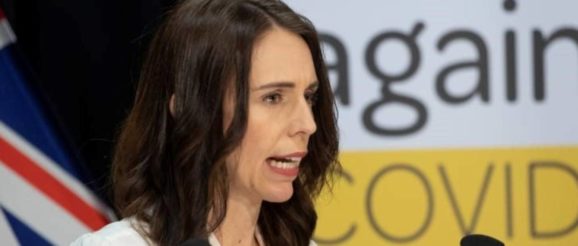Coronavirus: Democratic innovation provides platform for public trust in midst of crisis | Stuff.co.nz

OPINION: The existential threat created by Covid-19 is unlike any we have experienced in New Zealand since World War II. It raises both acute and long-term issues that government must address.
First it must handle the acute phase and, as we look to exit level four, the outstanding results speak for themselves. We will now go through a transition towards reactivating social and economic life, although for many the “new normal” will not look like the “old normal” for a long time, if ever. And for many, the echoes will be indelible.
Difficult decisions will continue to have to be made by the government’s executive, in the face of less than perfect information, and in a context where the virus may yet throw some more surprises.
Discussion of doing things differently must be balanced with the realities of the here and now – and yet major change is inevitable and offers many opportunities. Hard conversations will now have to be compressed in time.
What happens in other countries will have profound effects on what we can do; while mental health, social cohesion and indeed the resilience of individuals, society and institutions will be put under pressure. Sadly, many businesses face a very uncertain future.
Relative to many other countries, we sustain a high level of social cohesion and intrinsic trust in our institutions. But we also have deep and unresolved issues with parts of our society feeling disconnected or disempowered. These issues must not be forgotten as we seek a path ahead to advance our individual, social, environmental and economic wellbeing in a post-Covid world.
Sustaining social cohesion is critical to providing the resilience to cope with difficult times as the next few months and years unfold. Inevitably, the media will shift increasingly from celebrating our success against the virus, to stories of those who have had their lives blighted or feel they have been unfairly treated. Interest groups are already disputing and pleading their cases. Increasingly, as the election draws closer, some may feel that decisions are increasingly based on political, not national, needs.
Trusting the actions of those that govern us is critical in such times. The healthy part of a democratic election is the robust contest of ideas and policies from which citizens choose. But in that proper contest there will be questions asked about decisions made about the Covid-19, their rationale, the evidence, their timeliness and the degree of preparation.
Trust can erode rapidly, and the mood could darken as winter approaches and the focus turns to what’s next. In the acute phase, extraordinary powers have been given to ministers and crisis management agencies. Under these circumstances, accountability in close to real-time becomes important in ensuring trust in decisions that governments must make.
In the course of my international roles, much interest has been shown in an innovative solution created in New Zealand. As a part of the lockdown, Parliament was suspended, removing the normal but intensely political check on the executive through parliamentary questions.
This suspension could have left no oversight mechanism in place beyond relying on the media. But the creation of the Epidemic Response Committee was an insightful remedy, particularly as the evidence base for actions taken by the Government is fast-moving and fuelled by both transnational and domestic inputs.
This committee, chaired by the leader of the Opposition, with a majority of Opposition members, meeting in public, hearing from officials and ministers and key interested parties, supported by expert commentators, provides a critical trust-enhancing mechanism and the opportunity for the Government to explain its actions more fully.
The committee has taken a constructive and largely non-partisan approach by asking questions that have focused on what we all wish to be reassured about. It has exposed issues, and its inquiries have motivated governmental responses. This is a refreshing constitutional innovation to enhance public accountability in a crisis, when normal political processes are partially suspended, and is a precedent worth remembering and extending.
It is unrealistic to imagine such a process continuing through an election campaign, but it highlights the need for constructive inquiry and conversation as we head into the complexities of the recovery phase.
We need to sustain our cohesiveness, while engaging in a healthy contest of ideas in our robust democracy. Difficult and constructive conversations must continue, both within and beyond the political system over coming months as we explore what the new normal will be.
Koi Tū: the Centre for Informed Futures will play its part by continuing to promote informed reflection from multiple perspectives on these long-term issues.
* Sir Peter Gluckman is director of Koi Tū: The Centre for Informed Futures, at the University of Auckland.
